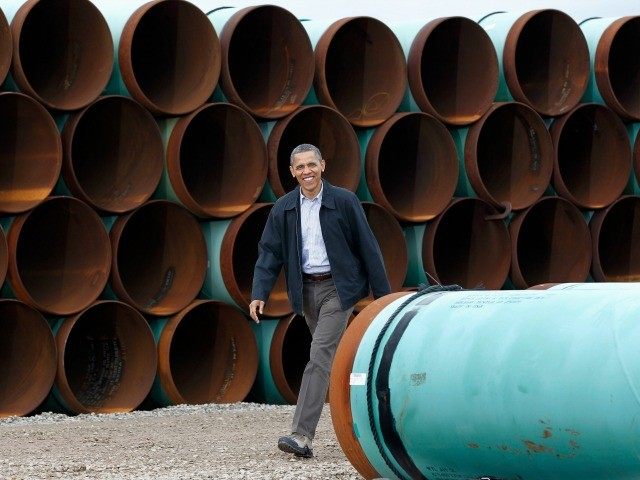Barack Obama’s veto of the bill allowing the construction of the Keystone XL pipeline is likely to be a bellwether of vetoes yet to come, reversing a trend in his first six years in office that saw him veto only two bills.
Obama vetoed a continuing resolution in 2009, but that mattered little because he had signed a full spending bill that made the resolution irrelevant. He vetoed a banking bill in 2010 that would have forced state and federal courts to recognize other states’s notaries.
Obama never had to veto bills because the Democrats controlled the Senate, and Senate Majority Leader Harry Reid prevented bills from reaching the White House that Obama would have vetoed. Obama’s three vetoes constitute the lowest total since James Garfield’s presidency, which lasted six months before he was assassinated.
But now, with the full Congress in the hands of the GOP, Obama will be confronted with bills that he dislikes, forcing him to exercise his right to veto. Democrats from GOP states may well be delighted with the GOP in charge of Congress; because Obama will be forced to veto GOP bills, the Democrats can vote for them and please their conservative constituents.
Gerhard Peters, a co-founder of the University of California-Santa Barbara’s American Presidency Project, pointed out, “President Obama is in his last two years, not up for any election again, and I think he can give the Democrats, a number of them in the Senate, political cover.”
George W. Bush, faced with a similar situation when the Democrats controlled the Senate, used “signing statements,” issuing executive orders but concomitantly signing a bill disapproving of some provisions of the orders. That practice, which Bush used to fight 1,200 provisions in 172 bills, allowed Bush to allow legislation he preferred to be implemented while pointing out he would not enforce every part of the legislation.
The number of presidential vetoes has dwindled from 635 by Franklin D. Roosevelt to 250 by Harry S. Truman to 181 by Dwight Eisenhower. Bill Clinton veoted 37; George W. Bush vetoed only 12.
Sidney Milkis, a professor at the University of Virginia’s Miller Center of Public Affairs, attributed the plunging numbers to the two main parties cohering more, as exemplified by Blue Dog Democrats who left the party, leaving the party more unified. Milkis added, “Parties are more dependent on the presidency to advance their causes. I think this is an enduring trend.”
Senate majority Leader Mitch McConnell and Speaker of the House John Boehner wrote a denunciation in USA Today of Obama’s expected veto, saying, “The allure of appeasing environmental extremists may be too powerful for the president to ignore. But the president is sadly mistaken if he thinks vetoing this bill will end this fight. Far from it. We are just getting started.”

COMMENTS
Please let us know if you're having issues with commenting.